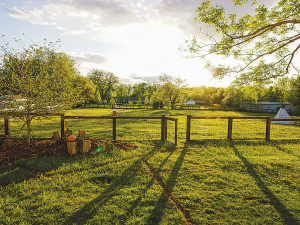On Your Behalf: Health and Safety Checklist for Vineyards and Wineries
Keeping healthy and safe during vintage 2026
 Under the Health and Safety at Work Act 2015, there is an obligation for businesses to manage their health and safety risks.
Under the Health and Safety at Work Act 2015, there is an obligation for businesses to manage their health and safety risks.
WorkSafe is recommending the dairy industry reassess its use of slide pulsators, following a recent death in a Waikato milking shed.
Jeff Bolstad died on 27 July in Morrinsville when his clothing become entangled in the rotating bar of a slide pulsator. There is no indication the 69-year-old intentionally reached into any part of the machinery.
WorkSafe is in the early stages of investigating the circumstances, but already has enough information to urge caution.
“We are extremely concerned about the risk posed by exposed moving parts on slide pulsators and urge farmers to check their set-up is safe or bring a specialist in for advice,” says WorkSafe’s investigation manager, Paul West.
Under the Health and Safety at Work Act 2015, there is an obligation for businesses to manage their health and safety risks.
For farmers, this means to either ensure slide pulsators are safe, substitute them for an electronic pulsator, install safeguarding to prevent access to any moving parts, or remove them. PVC tubing used on some farms is unlikely to provide enough protection to eliminate the risk and meet the required guarding standards.
“The risk of clothing entanglement is real, and steps need to be taken to manage that risk. Any rotating shafts that can catch clothing or body parts need as much protective guarding as possible, or to be replaced,” says West.
DairyNZ says the Government’s proposed Resource Management Act reform needs further work to ensure it delivers on its intent.
Overseas Trade Minister Todd McClay says he's working constructively with the Labour Party in the hope they will endorse the free trade agreement (FTA) with India when the agreement comes before Parliament for ratification.
Donald Trump's latest tariff tantrum has again thrown the world of trade into a new round of turmoil and uncertainty, and NZ is caught up in it.
The third edition of the NZ Dairy Expo, held in mid-February in Matamata, has shown that the KISS principle (keep it simple stupid) was getting a positive response from exhibitors and visitors alike.
Twenty years ago, South African dairy farm manager Louis Vandenberg was sent to a farm in Waikato to provide training on Afimilk technology.
Strong farmgate milk price is helping boost investment on farms, says PGG Wrightson chief executive Stephen Guerin.
OPINION: Is it a case of over promising and under delivering? Farmers think so.
OPINION: The UK dairy industry is celebrating a win after plant-based drink maker Oatly lost a long-running legal battle over…